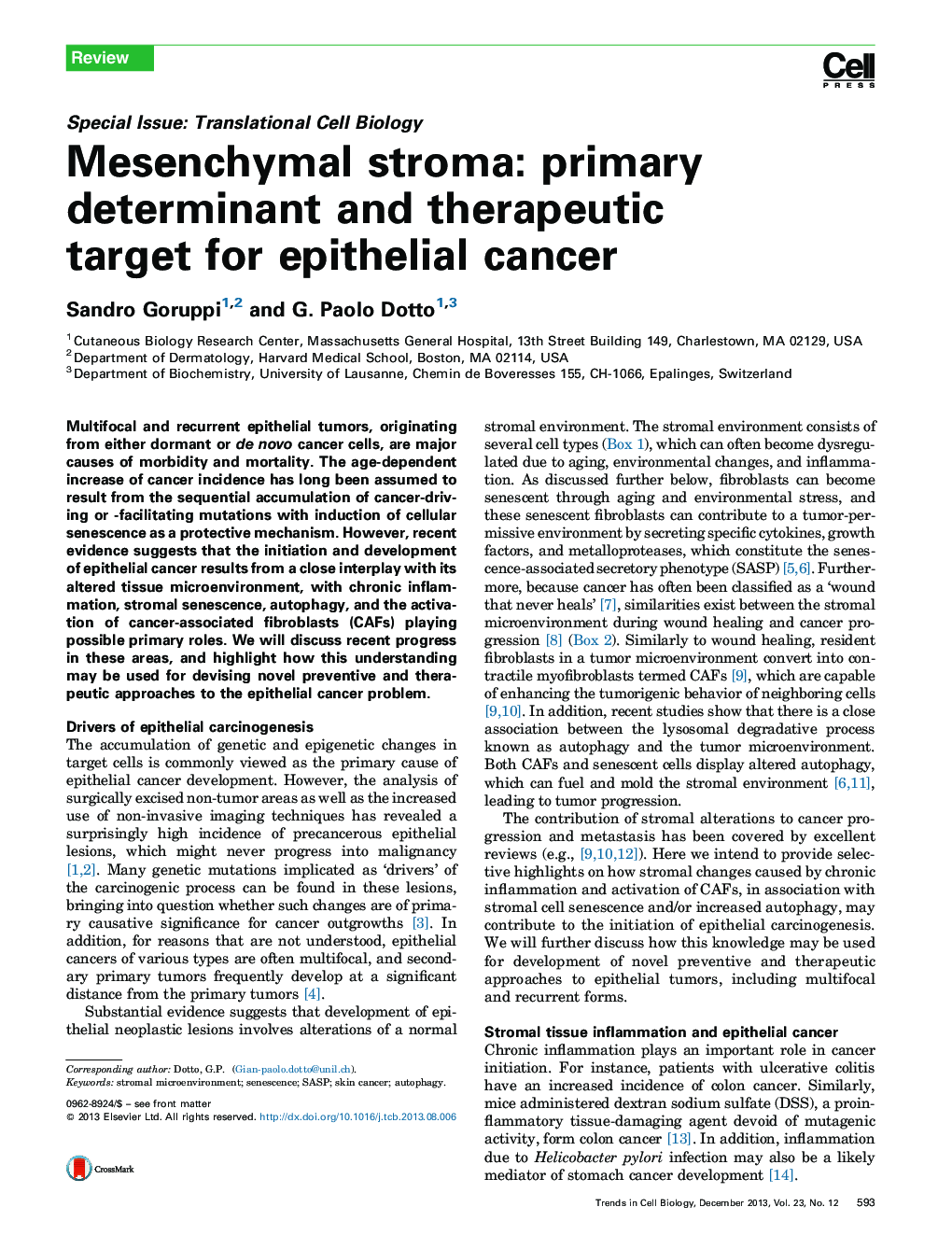| Article ID | Journal | Published Year | Pages | File Type |
|---|---|---|---|---|
| 2204474 | Trends in Cell Biology | 2013 | 10 Pages |
•The stromal compartment can be a primary determinant of early stages of epithelial cancer.•The stromal cellular environment can be responsible for recurring cancers.•Senescence and the senescence-associated secretory phenotype can create a permissive stromal environment.•Tissue chronic inflammation and deregulated autophagy in the stroma can contribute in promoting neoplastic transformation.•The selective targeting of these processes at stromal level might represent an alternative approach in cancer prevention and therapy.
Multifocal and recurrent epithelial tumors, originating from either dormant or de novo cancer cells, are major causes of morbidity and mortality. The age-dependent increase of cancer incidence has long been assumed to result from the sequential accumulation of cancer-driving or -facilitating mutations with induction of cellular senescence as a protective mechanism. However, recent evidence suggests that the initiation and development of epithelial cancer results from a close interplay with its altered tissue microenvironment, with chronic inflammation, stromal senescence, autophagy, and the activation of cancer-associated fibroblasts (CAFs) playing possible primary roles. We will discuss recent progress in these areas, and highlight how this understanding may be used for devising novel preventive and therapeutic approaches to the epithelial cancer problem.
